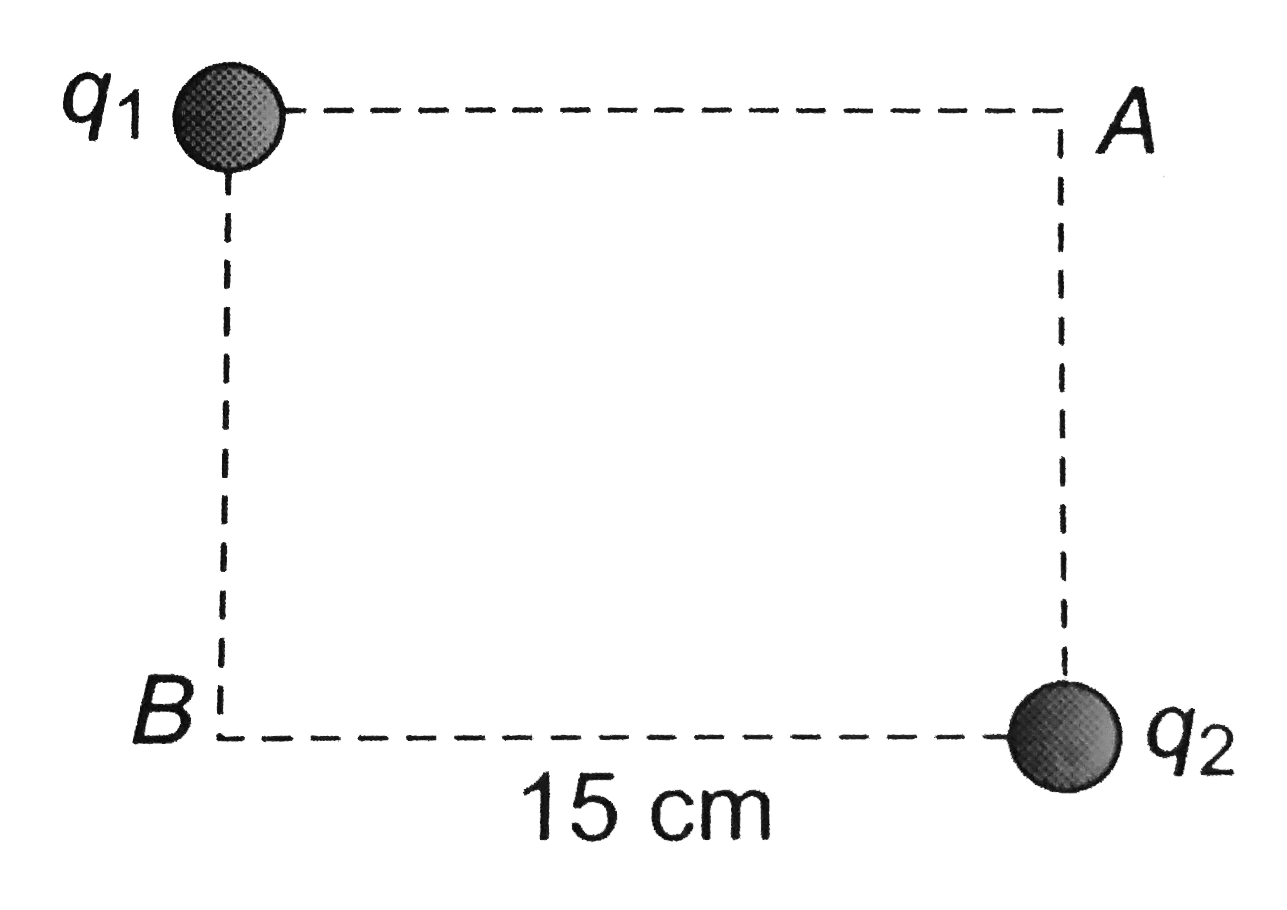In the rectangle, shown below, the two corners have charges q1=−5μC and q2=+2.0μC. The work done in moving a charge +3.0μC from B→A is (take 1/44πε0=1010N−m2/C2)

2.8 J
3.5 J
4.5 J
5.5 J
Step by step video & image solution for In the rectangle, shown below, the two corners have charges q_(1) = - 5mu C and q_(2) = + 2.0 mu C. The work done in moving a charge +3.0 mu C from B to A is (take 1//4 4pi epsilon_(0) = 10^(10) N-m^(2)//C^(2)) by Physics experts to help you in doubts & scoring excellent marks in Class 12 exams.
Updated on:21/07/2023Topper's Solved these Questions
Similar Questions
A charge of 5μC is placed at the center of a square ABCD of side 10cm. Find the work done (inμJ) in moving a charge of 1μC from A to B.
View SolutionThe force of interaction between two charges q1=6μC and q2=2μCis 12N .If charge q=−2μC is added to each of the charges,then the new force of interaction is
View Solution
Knowledge Check
In the rectangle, shown below, the twp corners have charges q1=−5μCandq2=+2.0μC. The work done in moving a charge +3.0μC from B to A is (take 1/4πε0=1010N-m2/C2)
 A2.8 JB3.5 JC4.5 JD5.5 J
A2.8 JB3.5 JC4.5 JD5.5 JTwo positive point charges of 12μC and 8μC are 10cm apart. The work done in bringing then 4cm closer is
A5.8JB5.8JC13JD13eVFour idenbtial charges +50μC each are placed, one at each corner of a square of side 2m. How much external energy is required to bring another charge of +50μC from infinity to the centre of the square
(Given 14πε0=9×109Nm2C2)A64JB41JC16JD10J
Two particles P and Q have charges +1,0μC and −1,0μC and their separation is 2.0cm .The dipole moment of system is ?
View SolutionTwo particles P and Qhave charges +1.0μC and −1.0μC and their separation is 2.0cm .The dipole moment of system is .
View SolutionTwo point charges 100μC and 5μC are placed at points AandB respectively with AB=40cm. The work done by external froce in displacing the charge 5μC from B to C, where BC=30cm, angle ABC=π2 and 14πε0=9×109Nm2/C2
View SolutionPoint charge q1=2μC and q2=−1μC are kept at points x=0 and x=6 respectively. Electrical potential will be zero at points
View SolutionA particle A of charge 1μC is held fixed at a point P in free space . Another particle B of same charge and mass 4μg is kept at a distance of 1mm from P. If B is released then its velocity at a distance of 9 mm from P is (Take 14πε0=9×109Nm2C−2)
View Solution
